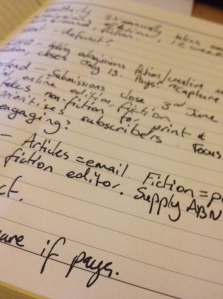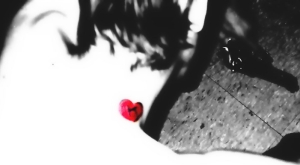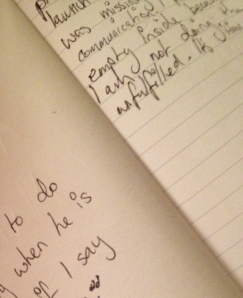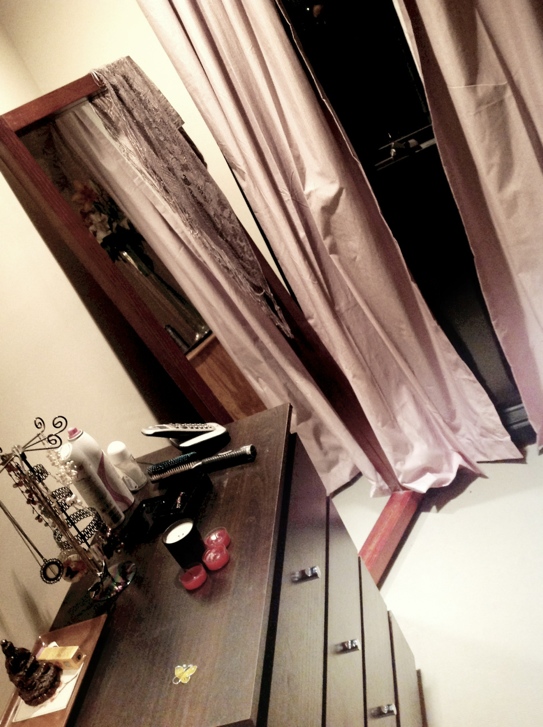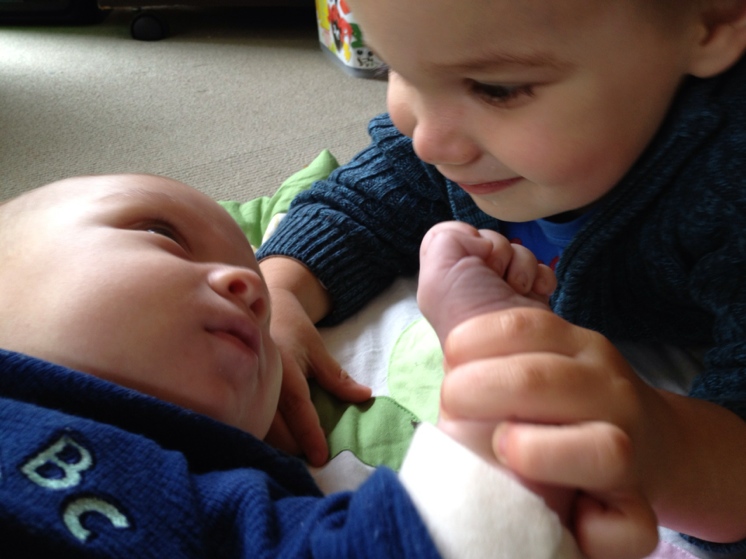If there’s one thing I’m good at, it’s crippling fear and anxiety when it comes to my writing. I’ve been thinking a lot about all the particular self-talk, procrastination and self-sabotage techniques that go into holding oneself back from being a writer. Here is a list I have made, in case you too would like to prevent yourself from achieving any kind of success.
1.- You just don’t have the time. Sure, there’s time to browse Pinterest for 45 minutes and faff around putting your hair in weird styles, but ultimately after you’ve spent half the day urgently colour-coding your wardrobe, there’s no real time to settle in at the computer and gets some words down. Damn.
2.- You’re just not feeling it right now. You need a zone, you know? Some kind of centre has to be achieved. You need the right playlist. Everything has been kind of hectic and you’re feeling overwhelmed and maybe after a bubble bath and eight double choc chip cookies oh but now you’re tired and it’s late so tomorrow.
3.- You don’t have any ideas at the moment. I mean, never mind that writing is, you know, a job and something you have to work at. Never mind that maybe you could sit down and brainstorm some article ideas or do a blog post or dredge up one of those 352 unfinished fiction pieces you have sitting on your hard drive. Never mind any of that. You’re drawing a blank. Better watch some telly.
4.- There are so many writers that are better than you. And they seem to have it covered. I mean, why bother pitching to the publications where some of the people you respect the most are regularly published? You’re not nearly as good as they are, and to even ask for the comparison is embarrassing. Better not to pitch to these publications because they’ll just laugh at you.
5.- Pitching is hard. It’s like, regular work. You have to do it often and think hard on your ideas and accept rejection. You have to keep crafting ideas and even if your ideas are good, people STILL might say no because it’s just not what they’re looking for right now. You have to keep cold calling and cold calling with your work, trying to convince some editor that your work is worth paying for. Doesn’t that sound awful? That sounds awful. Let’s not do that.
6.- Writing has to happen around the rest of your life. So even if you manage to drag yourself off Pinterest for five minutes by switching off your internet connection and getting someone to hide the router, other stuff keeps getting in the way. The kids still expect to eat. The house is a shambles. You have doctor’s appointments and family visits and other work to do. Really, there’s a lot of reasons not to throw yourself at the writing thing, and the rest of your life is the main one. Time and tide wait for no writer. Dear lord somebody has to vacuum the living room and the two year old insists he doesn’t know how.
7.- Even if you try your hardest, you might not succeed. Which is huge really – you could put SO much time and effort into pitching and writing and submitting, and nothing could come of it. That would suck so hard. Imagine how horribly disappointing that would feel? Better not to try. Maybe just nibble at the edges, look at some publications that are accepting submission, think vaguely that you should write something, and then forget about it. Then you can kind of convince yourself you would have gotten around to it eventually.
8.- Don’t go to writing events where you might engage or learn something because that will just make you feel worse. In fact, studiously avoid any event where you know more than one other writer will be attending. If there’s an event where another known writer is attending and that writer is successful, fake a sickie. Tell them your grandmother died. You really don’t want to be anywhere you might feel any sort of guilty inspiration to get some work done. Other writers, who are actively writing, will just make you feel bad about yourself. Avoid, avoid.
9.- It’s not really a job, so you don’t have to work at it. Writing is just a thing you’ve always done when you had the time, but never what you’ve earned your money from, so why start now? You probably don’t deserve any money for what you do anyway – you’re not very good and other people are better. Don’t work at it. Don’t try to better yourself. Don’t ask to be paid. Find another office job and put this idea away.
10.- Just think about it tomorrow. Do the work tomorrow. Brainstorm tomorrow. Send something off to an editor tomorrow. There’s always something else to do right now, something else that needs your attention, something to distract you. Tomorrow. You’ll get to it tomorrow.
Promise.
